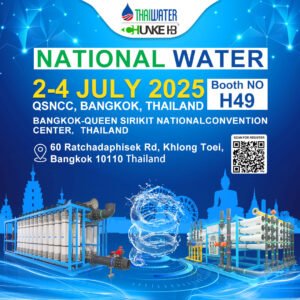Reverse Osmosis & Water Treatment in Tanzania
CHUNKE projects of Reverse Osmosis Water Treatment in Tanzania including different types of water treatment systems and water treatment plant.
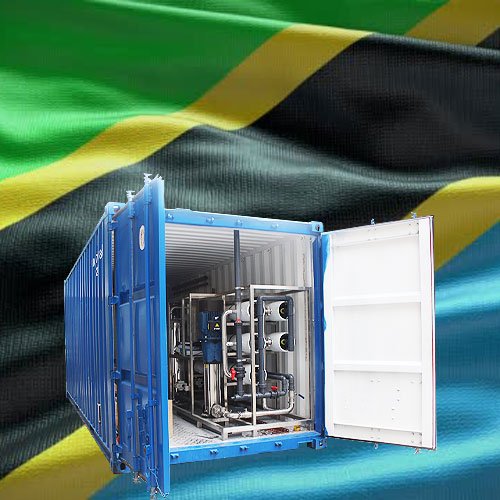
Tanzania, officially the United Republic of Tanzania (Swahili: Jamhuri ya Muungano wa Tanzania), is a country in East Africa within the African Great Lakes region. It borders Uganda to the north; Kenya to the northeast; the Indian Ocean to the east; Mozambique and Malawi to the south; Zambia to the southwest; and Rwanda, Burundi, and the Democratic Republic of the Congo to the west. Mount Kilimanjaro, Africa’s highest mountain, is in northeastern Tanzania. According to the 2022 national census, Tanzania has a population of nearly 62 million, making it the most populous country located entirely south of the equator.
Total renewable water resources in Tanzania
In 2020, renewable water resources per capita for United Republic of Tanzania was 1,611.6 cubic meters per year. Between 1971 and 2020, renewable water resources per capita of United Republic of Tanzania was declining at a moderating rate to shrink from 6,890.4 cubic meters per year in 1971 to 1,611.6 cubic meters per year in 2020.
- Renewable surface water: 92.3 billion cubic meters per year
- Renewable groundwater: 30 billion cubic meters per year
- Renewable water resources: 96.3 billion cubic meters per year
- Dependency ratio: 12.7 %
Meanwhile, CHUNKE provides wide range of filtration and economical solutions based on the Tanzania’s water resources. So, our water treatment in Tanzania becomes more popular accordingly.
- Surface water is water from river, lake which can be treated using different methods, such as Ultrafiltration Systems, Brackish Water RO accordingly.
- Desalination can be used for water from ocean, or sea source, which can be treated using Sea Water Reverse Osmosis Systems; Desalination Systems
- Ground Water or brackish water is from water located in the pore space of soil and rock “Borehole well”, which can be treated using Reverse Osmosis Systems, Borehole Water Filtration Systems, Well Water Filtration Systems, Chemical Dosing, UV Water Sterilizer accordingly.
- Government water supply, which could have high level of hardness or high level of chlorine, can be treated with Water Softener System, Media Water Filters.
Understand Water Treatment in Tanzania
Access to clean and safe water is a fundamental human right, yet many regions in Tanzania still face challenges in providing adequate water supply and sanitation facilities. Efforts have been made to enhance water treatment at the point of use, but there is still a significant portion of the population without access to clean water sources. In this article, we will explore the current state of water supply in Tanzania and the various methods of water treatment being implemented to address the issue.
CHUNKE Projects of Water Treatment in Tanzania
Meanwhile, CHUNKE designs and produces water treatment systems that meet the World Health Organization requirements. So, our water treatment in Tanzania is suitable for drinking.
CHUNKE has over 15 years of experience as a global provider of B2B water treatment solutions for a variety of applications and industries, we offer a large selection of all types of reverse osmosis, ultrafiltration, electrodeionization and water treatment systems to meet your industrial needs accordingly. CHUNKE’s extensive global experience in engineering and manufacturing allows us to pre-engineer and customize water treatment and reverse osmosis systems to meet a wide range of customer requirements and specifications.
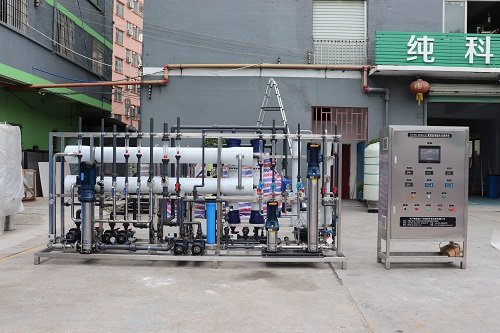
2500LPH Brackish Water Desalination System
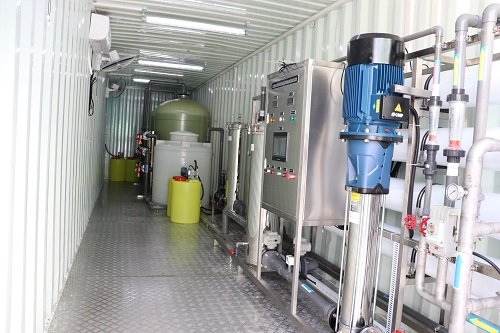
14TPH Containerized Reverse Osmosis System
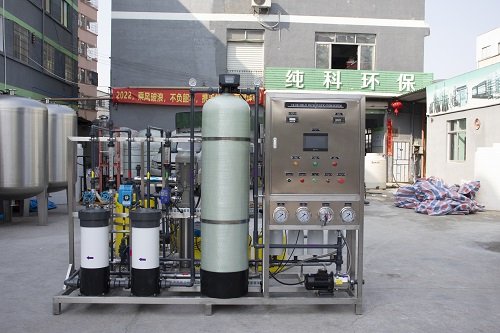
500LPH Sea Water SWRO for Drinking
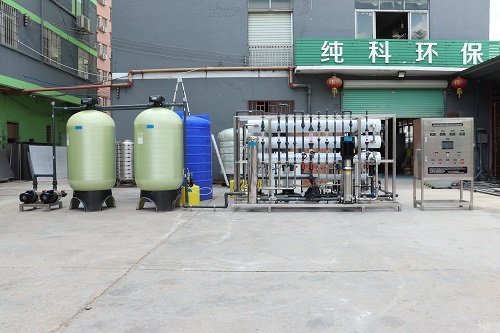
5000LPH RO Salt Water Purifier for Irrigation
The Water Crisis in Tanzania
Tanzania, with a population of approximately sixty million people, is located in East Africa and is surrounded by the Indian Ocean, Kenya to the north, and Mozambique to the south. Despite its abundant water resources, the country faces several environmental challenges that impact water availability and quality. Soil degradation, deforestation, and desertification contribute to water scarcity, while the destruction of coral reefs threatens marine habitats. Additionally, illegal hunting and trade pose a threat to wildlife, including elephants for their ivory.
Access to Safe Water in Tanzania
Access to safe drinking water remains a challenge in Tanzania. In 2020, only 61 percent of the population had access to basic water sources, an increase from 28 percent in 2000. Piped water sources are more common in urban areas, with 60 percent of households relying on piped water. In rural areas, however, access to piped water is limited, with only 7 percent of households having piped water into their dwellings or yards. Surface water, unimproved sources, and limited sources still make up a significant portion of drinking water supplies.
Efforts in Water Treatment
To improve access to clean water, various water treatment methods are being implemented in Tanzania. These methods include reverse osmosis, ultrafiltration, desalination, and chemical dosing. Each method is tailored to address specific water sources and their associated contaminants.
Reverse Osmosis (RO) in Tanzania
Reverse osmosis is a widely used water treatment technology that effectively removes impurities from water. In Tanzania, RO systems are utilized to treat brackish water and desalinate saltwater. These systems use a semi-permeable membrane to separate dissolved salts, minerals, and other contaminants from the water, producing clean and safe drinking water. RO systems have been deployed in areas with high levels of salinity and hardness in the water, providing a reliable source of potable water.
Ultrafiltration and Other Treatment Methods
In addition to reverse osmosis, ultrafiltration systems are also employed in Tanzania for water treatment. Ultrafiltration utilizes a membrane with fine pores to remove suspended solids, bacteria, and viruses from the water. This method is effective in improving water quality and reducing the risk of waterborne diseases.
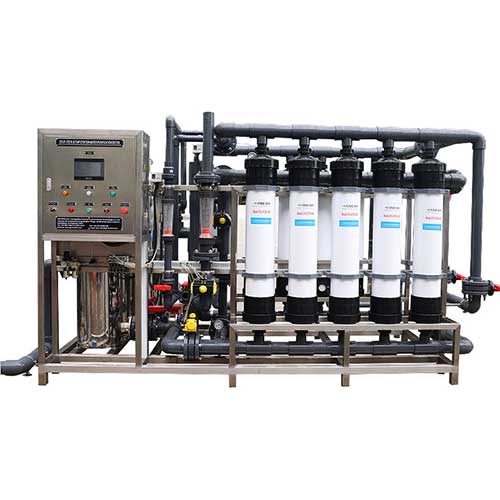
Chemical dosing is another common water treatment method used in Tanzania. Chemicals such as chlorine are added to water to disinfect it and kill harmful microorganisms. This process ensures that the water is safe for consumption.
Addressing Water Scarcity with Desalination
Tanzania’s coastal regions face water scarcity due to limited freshwater sources. To alleviate this issue, desalination systems are employed to treat seawater and convert it into potable water. Desalination involves the removal of salt and other impurities from seawater, making it suitable for drinking and other purposes. This technology has the potential to provide a sustainable solution for areas with limited freshwater resources, ensuring a continuous supply of clean water.
Public-Private Partnerships for Water Treatment
The government of Tanzania, in collaboration with international organizations and private companies, has been working towards improving water treatment and access to clean water. Public-private partnerships play a crucial role in implementing water treatment projects and expanding water resources in the country. These partnerships enable the mobilization of resources and expertise to develop infrastructure, such as dams and water treatment plants, to enhance water supply and sanitation services.
The Role of CHUNKE in Water Treatment
CHUNKE, a leading provider of water treatment solutions, has been actively involved in addressing water challenges in Tanzania. The company offers a range of water purification technologies, including reverse osmosis systems and ultrafiltration systems. CHUNKE’s customized solutions are designed to meet the specific water treatment needs of Tanzania, such as treating high turbidity and nutrient solutions in Lake Victoria. With over 15 years of experience, CHUNKE has been at the forefront of providing innovative water treatment solutions globally.
To ensure the safety and quality of borehole water, specialized water treatment solutions are required. So, these solutions may include a combination of filtration technologies such as sediment filters, activated carbon filters, and UV sterilization. By tailoring the treatment process to the specific needs of borehole water, it is possible to remove contaminants and provide clean and potable water for domestic and agricultural use, accordingly.
Industrial RO Plants for Sustainable Water Management
The industrial sector in Tanzania is a significant consumer of water, and efficient water management is essential for sustainable development. Industrial RO plants offer a comprehensive solution for treating and reusing water within industrial processes. So, these plants can help reduce water consumption, minimize wastewater discharge, and improve overall operational efficiency, accordingly.
Industrial RO plants are designed to handle large volumes of water, making them suitable for various industries, including manufacturing, food and beverage, mining, and power generation. By implementing RO systems, industries can reduce their reliance on freshwater sources, conserve water resources, and contribute to a more sustainable water management strategy.
The Importance of Water Filtration Systems
Water filtration systems play a crucial role in ensuring clean and safe water for both domestic and industrial use. So, these systems are designed to remove impurities and contaminants, improving the taste, odor, and overall quality of water. Filtration technologies, such as activated carbon filters, multimedia filters, and ceramic filters, are commonly used to target specific contaminants and provide effective water treatment.
In Tanzania, where water pollution is a significant concern, water filtration systems are essential for protecting public health and preserving the environment. By investing in reliable filtration technologies, individuals, communities, and industries can have access to clean and safe water, promoting a healthier and more sustainable future, accordingly.
Chunke is Trusted Water Treatment Supplier from China
In Tanzania, Chunke Water Treatment, a leading supplier of reverse osmosis systems from China, has been actively involved in providing water treatment solutions. With over 15 years of industry experience, Chunke Water Treatment offers a wide range of reverse osmosis and water treatment systems tailored to meet the specific needs of industries and communities in Tanzania.
Chunke Water Treatment’s expertise in producing high-quality reverse osmosis systems has contributed to improving water treatment capabilities in Tanzania. So, their reliable and efficient RO plants have been implemented in various projects across the country, ensuring access to clean and safe drinking water.

